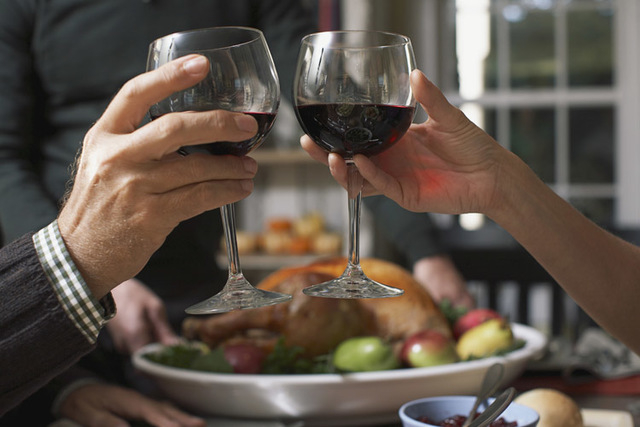How being thankful actually makes you healthier
On Thanksgiving Day, Americans sit down with family and loved ones to give thanks for our many blessings. The roots of this holiday can be traced back to 1621 when the Puritans in Plymouth Colony gave thanks for a bountiful harvest. And in 1789, with the founding of the union, George Washington issued the first national proclamation for a nationwide day of “thanksgiving and prayer.”
As we prepare for turkey, trimmings and delectable desserts this week, let’s not forget the words of Edward Sanford Martin: “Thanksgiving Day comes, by statute, once a year; to the honest man it comes as frequently as the heart of gratitude will allow.” And, too, being thankful is good for our heart, body, mind and spirit, everyday.
Dr. Nina’s What You Need To Know: About the Health Benefits of Gratitude
What is gratitude? Derived from the Latin word gratia, gratitude means grace, graciousness or gratefulness. It is recognition of what is good in one’s life; to appreciate what we have; and a value of thankfulness. Gratitude helps us recognize that the source of that goodness lies at least partially outside of ourselves—people, nature or a spiritual connection.
What are the health benefits of being grateful? Increased overall happiness.
- Emotional: More good feelings, relaxed, resilient, and good memories
- Personality: More optimistic, empathetic, spiritual, and self-esteem; less materialistic, bitter, and self-concerned
- Social: More social, nicer, trusting; as well as kinder, and having deeper relationships
- Health: More sleep, healthy eating, energy, exercise, and lifespan; decreased illness and depression
- Career: better management, networking, goal achievement, productivity, and decision-making. One study showed that grateful high school students typically perform better scholastically and have better social integration and satisfaction in life compared to their not-grateful counterparts.
What are some tips for being grateful?
- Choose to look at the glass being half-full. Especially when we are thirsty, let’s feel gratitude for having something to drink. This past year has taught me that it is not so much a challenging situation that is upsetting, it is my perception of it. And, too, when one door closes, another – sometimes multiple ones – opens. Let’s be grateful for the closing and opening of doors. They may not be what we expected, but they were meant to be.
- Write it down. I keep a gratitude journal where I write down at least 3 things, every single day, that I am grateful for. They stem from the important—health (myself and family’s), freedom from oppression, the food I eat—to the mundane.
- Express gratitude to those we love. As William Arthur Ward stated: “Feeling gratitude and not expressing it is like wrapping a present and not giving it.” Take the time to pick up the phone or write a letter or email to tell our loved ones how they have impacted us. Or, reciprocate by doing something thoughtful for them, like giving them something of ours that they may enjoy, mowing their lawn, or helping them tidy up their home. And my favorite: look at them in the eyes and tell them that they made our world a better place.
- Express gratitude to people who support and serve us – at home, on the job and within our community – and our country. Thank them with words, a smile or writing a note; tell their boss they are doing a great job; or leave a larger than usual tip.
- Express gratitude to people we work with. We spend the better part of most days with our colleagues. Expressing gratitude to them not only can foster team building, but also improve productivity. Consider buying them a cup of coffee, writing them a thank you note or email, complimenting them when they do something well or offering to help them with their duties.
- Express gratitude to those who challenge you. Every relationship provides an opportunity to love, trust, forgive, set boundaries and teach. Be grateful for the lessons they taught us, the new perspective on life they forced down our throat, and, even, that they are no longer in your life.
Being thankful with a sincere attitude of gratitude can bring us happiness which affects our mental, physical, emotional and spiritual health. As Gobble Gobble Day approaches, let’s remember that there are another 364 days in the year. Let’s focus on what we have and not what we lack, everyday. And, although it may feel contrived at first, this mental state grows stronger with use and practice. So, on this day, I would like to say thank you, gracias, salamat, grazie, merci, and danke to each of you.
This information is for educational purposes and should not be considered specific medical advice. Always consult with a qualified medical professional regarding your individual circumstances.
Dr. Nina Radcliff is dedicated to her profession, her patients and her community, at large. She is passionate about sharing wise preventive health measures. Contact her on Facebook or Twitter @drninaradcliff.

















